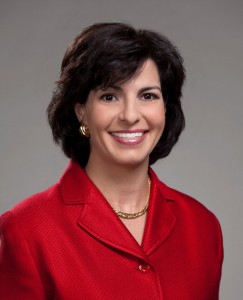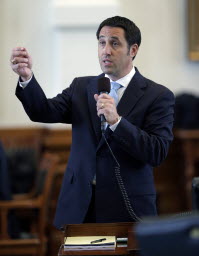UPDATED 10:40: A six-member panel on hospital preparedness suggested to the task force centralized training protocols for healthcare workers; a command center for sharing information with the public; and better coordination between local, state and federal officials.
Experts’ views varied most on extended treatment of patients and specialized infectious disease centers.
Joseph McCormick, dean of UT School of Public Health in Brownsville, said “broad training” is needed at community hospitals across the state to be prepared for the extended care of infectious disease patients.
“These kinds of events are not going to go away. We can’t chose where these patients are going to be” and the condition the patient will be in when they arrive at the hospital, McCormick said.
Each hospital should have a small, very well-trained staff to deal with the arrival of a new infectious diseases, he said, and be prepared to have that patient for an extended period of time if the patient is too sick to transport.
Alexander Eastman, interim medical director at UT Southwestern and Parkland Memorial Hospital, said its important to have regional specialized centers for extended treatment of such patients because of the “disruption” having even just one patient causes at community hospitals.
When the first Ebola patient arrived at Presbyterian, other hospitals “felt a disruption” because they had increased traffic in their ER rooms, he said. Having a center where infectious disease patients would be sent would help avoid those disruptions, he said.
Experts found consensus on the need for a coordinated “command system” to manage communication and public information about the presence of a new disease. That included ideas for how to maintain accurate updates through social media and other forms to avoid public fear.
William Sutker, chief of infectious disease at Baylor University Medical Center in Dallas, called for better coordination between federal, state and local officials.
“CDC response and guidance has been slow,” he said.
There needs to be an improved method for expediently connecting authorities and shares information between federal, state and local levels would be beneficial, he said.
The infectious disease task force has already initiated the creation of two designated Ebola centers and reiterated Thursday their support for the specialized centers.
Original: AUSTIN— The state’s infectious disease task force meets for the first time in public Thursday at the Capitol to continue discussing its recommendations for how the state should deal with infectious diseases.

Brett Giroir at Oct. 6 task force announcement
Among the topics up for discussion are how waste should be handled, the protective gear needed for healthcare workers, hospital preparedness and innovations in quickly identifying contagious diseases.
Recommendations from the task force could be used to create state protocols to have in place when a infectious disease is identified.
Gov. Rick Perry announced the formation of the task force about a week following the first diagnosis of Ebola on American soil. Dr. Brett Giroir, CEO for the Texas A&M Health Science Center, serves as the director.
So far, the task force has recommended designating two state hospitals as Ebola centers; establishing specialized patient transport teams; increasing healthcare worker training in infectious disease protocols; having more testing labs; and granting the Department of State Health Services chief the authority to issue Enforceable Control Orders.
Perry announced yesterday that UT Southwestern Medical Center and UT Medical Branch in Galveston will be designated treatment centers for Ebola.
The task force and the invited panels do not include a representative from Texas Health Presbyterian Hospital, the only facility in the state that has received Ebola patients.
Updates will be posted to this blog. Hearing begins at 9 a.m.











